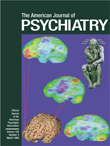Another Perspective on “Putting DSM-IV in Perspective”
To the Editor: We learn from the editorial by Gary J. Tucker, M.D., “Putting DSM-IV in Perspective” (1), that he finds the current practice of psychiatry “boring.” (In fact, “boring” appears three times in his editorial.) Remarkably, he states that “our current diagnostic process and zeal [with which we] have grasped the DSM process to our bosoms” may be “ruining the essence of psychiatry” (p. 159). This is certainly a strong indictment, and even though he implicates managed care as a co-conspirator, we challenge his arguments.
1. With the current use of DSM-IV, “we have lost the patient and his or her story” (p. 159). In all of medicine, there is, and always has been, the danger that the patient as a unique individual will get lost as the clinician focuses on the patient’s symptoms and disorder. We recall how—in pre-DSM-III times—the symptoms and personal experiences of psychiatric patients were lost in other ways—e.g., in unfounded speculation about the mother’s etiologic role in schizophrenia and the presumed causative role of early childhood experiences in all serious psychopathology. As evidence of DSM complicity, Dr. Tucker cites a teaching case (at his own institution?) in which the resident apparently was unaware of a critical psychosocial stressor that immediately preceded his patient’s extreme weight loss. Should this oversight be blamed on DSM? It would not have happened with one of our residents or any resident who has been taught the importance of obtaining information to evaluate axis IV (psychosocial and environmental problems) as part of a comprehensive psychiatric assessment.
2. “The study of psychopathology is almost nonexistent” (p. 160). Really? In the very issue in which his editorial appears, we count that no less than 12 out of the 16 Regular Articles and four out of the seven Brief Reports focus directly on some aspect of psychopathology (not just the prevalence of one or more DSM diagnoses). Some examples: Vaillant’s report on the natural history of male psychological health (2); Swartz et al.’s report on violence and severe mental illness (3); and Jenkins et al.’s report on learning and memory in rape victims with PTSD (4).
We do take Dr. Tucker’s concerns seriously. We would like to learn how widespread the problem is of clinicians losing the patient as they focus on making DSM axis I and II diagnoses, while ignoring the other components of the DSM multiaxial system. What we find strange is that Dr. Tucker, himself a chairman of a department of psychiatry, makes no mention of the responsibility of psychiatric educators to remedy such misuse of DSM. We believe that the five axes of a multiaxial assessment provide a conceptual framework for a balanced and broad psychiatric assessment in which the patient does not get lost but the nature of his or her difficulties are, one hopes, clarified.
In other words, let us not go from zealous clasping of DSM to our bosoms to putting it into the closet with managed care. Let us recognize its remarkable breadth, which clearly allows patients’ experiences as well as their symptoms to be woven into a story that can enliven even the bored among us.
1. Tucker GJ: Putting DSM-IV in perspective. Am J Psychiatry 1998; 155:159–161Abstract, Google Scholar
2. Vaillant GE: Natural history of male psychological health, XIV: relationship of mood disorder vulnerability to physical health. Am J Psychiatry 1998; 155:184–191Abstract, Google Scholar
3. Swartz MS, Swanson JW, Hiday VA, Borum R, Wagner HR, Burns BJ: Violence and severe mental illness: the effects of substance abuse and nonadherence to medication. Am J Psychiatry 1998; 155:226–231Abstract, Google Scholar
4. Jenkins MA, Langlais PJ, Delis D, Cohen R: Learning and memory in rape victims with posttraumatic stress disorder. Am J Psychiatry 1998; 155:278–279Abstract, Google Scholar



